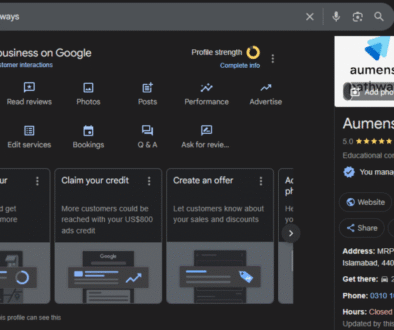Building Quality Backlinks: A Practical Guide for Small Businesses
TL;DR: Quality backlinks signal trust to search engines and improve rankings. Small businesses can build them by creating valuable content, guest posting, joining local directories, and fostering partnerships. Focus on relevance and credibility over quantity for long-term SEO growth.
What Is a Technical SEO Audit?Why Backlinks Matter for Small Businesses
Backlinks are links from other websites pointing to yours. Search engines treat them as “votes of confidence.” The more high-quality backlinks you earn, the more trustworthy your site appears, helping you rank higher and attract more targeted visitors.
For small businesses competing online, smart link building strategies level the playing field against bigger brands.
Quality vs. Quantity: What Really Counts
Not all backlinks are created equal.
- Quality: A link from a respected industry blog carries more value than 100 spammy links.
- Relevance: Links from sites in your niche help Google see your authority.
- Natural growth: Links should be earned, not bought, to avoid penalties.
1. Create Share-Worthy Content
Content that solves problems or provides insights is more likely to be linked. Consider:
- How-to guides
- Case studies
- Infographics and data visualizations
- Industry-specific tips
High-value content naturally attracts backlinks over time.
2. Guest Posting on Relevant Websites
Reach out to industry blogs or local news sites and offer to contribute. Guest posts showcase your expertise, help new audiences discover you, and often include a backlink to your website.
3. Leverage Local Business Directories
Claiming and optimizing listings on Google Business Profile, Yelp, and local chambers of commerce gives both visibility and valuable backlinks. These citations also strengthen your local SEO.
4. Build Partnerships and Collaborations
Partner with suppliers, clients, or local organizations. Co-hosting events, writing joint blogs, or offering testimonials can result in backlinks from their websites to yours.
5. Monitor and Maintain Your Backlink Profile
Use tools like Google Search Console or Ahrefs to track backlinks. Disavow spammy or irrelevant links that might harm your rankings. Focus on steady growth of credible, relevant links.
Final Thoughts
For small businesses, link building is less about chasing hundreds of links and more about building meaningful, high-quality connections. By focusing on relevance, trust, and genuine relationships, you’ll improve search rankings and strengthen your online reputation.
Building quality backlinks is a long-term strategy, but it pays off by driving sustainable traffic and building brand authority.



